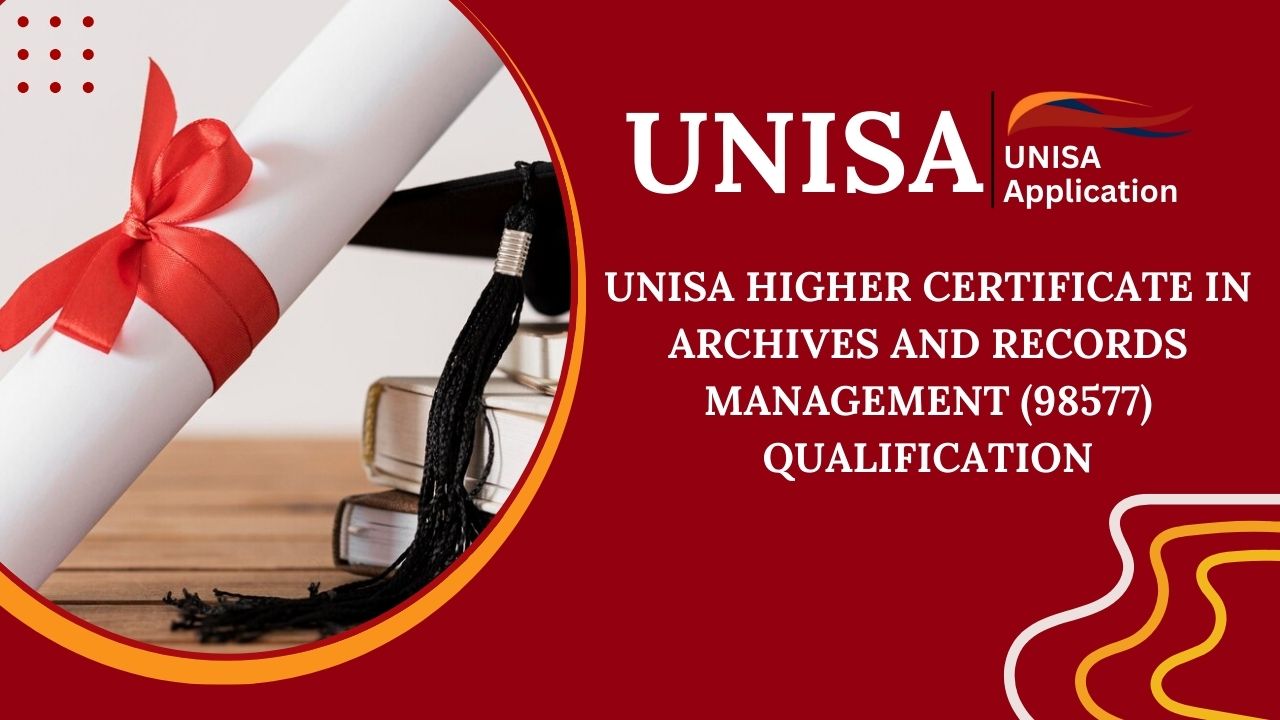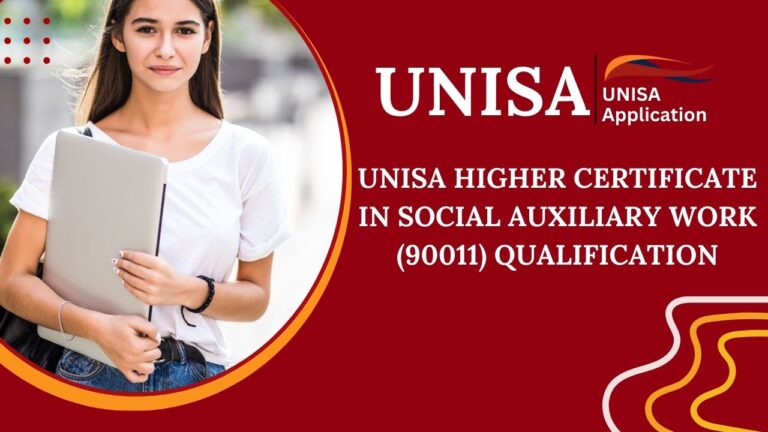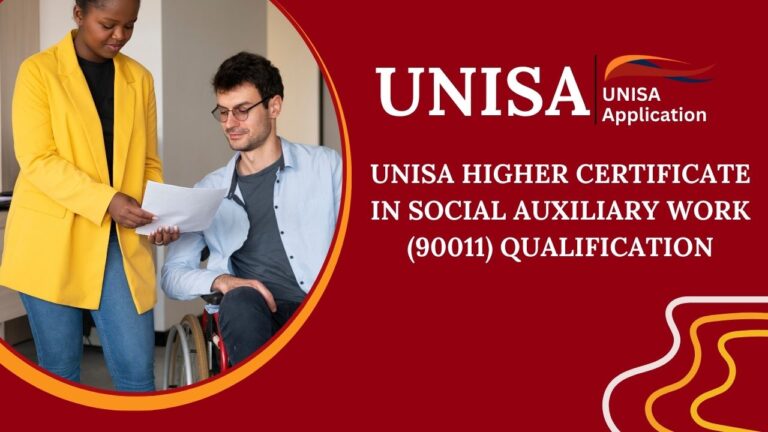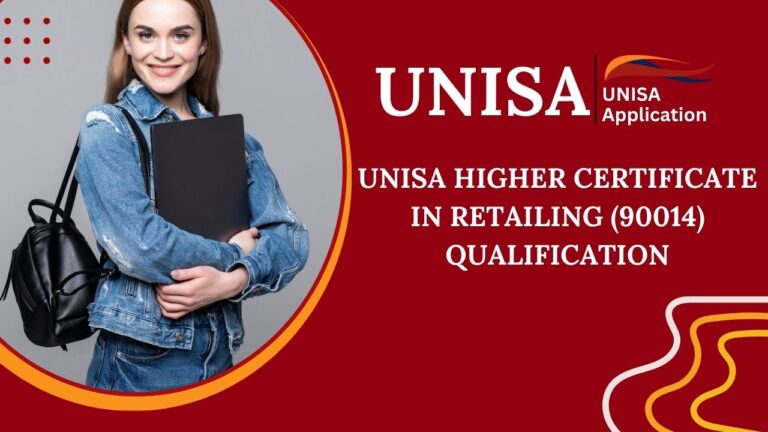UNISA Higher Certificate in Archives and Records Management (98577) Qualification

UNISA Higher Certificate in Archives and Records Management (98577) Qualification. The UNISA Higher Certificate in Archives and Records Management is an excellent entry-level qualification designed to equip students with foundational knowledge and practical skills in archival and record-keeping practices. This programme is ideal for individuals interested in maintaining and managing historical and business records effectively.
Qualification Overview
- Qualification Code: 98577
- NQF Level: 5
- Total Credits: 120
- SAQA ID: 86446
- APS/AS Requirement: 15
- Study Mode: Online and Distance Learning
This qualification is structured into ten modules, requiring students to have access to a computer, printer, and internet throughout their studies.
Purpose and Importance of the Qualification
The need for well-structured archives and records management systems has become crucial across various industries. This qualification provides students with essential technical expertise for the administration, safekeeping, and preservation of records.
Professionals in this field must continuously adapt to evolving technologies to enhance record classification and retrieval processes.
Graduates of this programme will develop the ability to manage archives independently, ensuring compliance with prescribed legislation and best practices. This will enable them to provide effective and efficient records management services in both public and private sectors.
Who Can Register for This Programme?
To register for the Higher Certificate in Archives and Records Management, applicants must first receive an official offer from UNISA and accept it online. The university reserves the right to cancel registrations if a student was admitted incorrectly.
New and Returning Students
- New applicants and Unisa students applying for a new qualification must wait for an admission offer before registering.
- Returning students can register for the 2025 academic year once the registration period opens.
- Students wanting to pursue a new qualification must apply online during the prescribed application period.
Choosing Your Modules
When selecting modules, students must ensure they meet the NQF-level credit requirements within the stipulated timeframe to graduate successfully.
Understanding Co-requisites and Pre-requisites
- Co-requisite: If Module A is a co-requisite for Module B, both must be registered simultaneously.
- Pre-requisite: If Module A is a pre-requisite for Module B, students must pass Module A before registering for Module B.
Credit Limitations
- Maximum credits per semester: 60
- Maximum credits per academic year: 120
- Credits from supplementary or non-degree modules also count towards the total credit limit.
Students should consider their available study time, as academic performance depends on effective time management. The estimated weekly study time is:
- Semester modules: 6 to 8 hours per week
- Year modules: 4 to 6 hours per week
Curriculum Breakdown for the Qualification
The programme consists of compulsory modules that cover different aspects of archives and records management.
| Module Name | Code |
|---|---|
| Introducing Applied Information Science | AIS1501 |
| Introducing Information Records and Sources | AIS1503 |
| Introducing Archives and Records Management | ARM1501 |
| Managing Records | ARM1502 |
| Managing Archives | ARM1503 |
| Preserving Records and Archives | ARM1504 |
| Electronic Records Management | ARM1505 |
| Practising Workplace English | ENG1504 (Previously ENN1504) |
| Ethical Information and Communication Technologies for Development Solutions | EUP1501 |
| Developing Information Skills for Lifelong Learning | INS1502 |
Why Choose This Qualification?
- Growing Industry Demand: The need for records management professionals is rising across various sectors, including government, healthcare, and corporate environments.
- Flexible Learning: Students can pursue this qualification through distance learning and online platforms, making it accessible to working professionals.
- Skill Enhancement: Graduates develop expertise in archival preservation, digital record management, and compliance with legal frameworks.
- Career Opportunities: Successful completion opens doors to roles such as Records Administrator, Archivist, Information Officer, and Digital Records Manager.
Conclusion
The UNISA Higher Certificate in Archives and Records Management provides a strong foundation for those aspiring to build a career in archival and records administration.
The combination of theoretical knowledge and practical skills prepares students for dynamic roles in information management. Whether you’re looking to advance your current position or step into the industry, this program equips you with the necessary tools to succeed.






